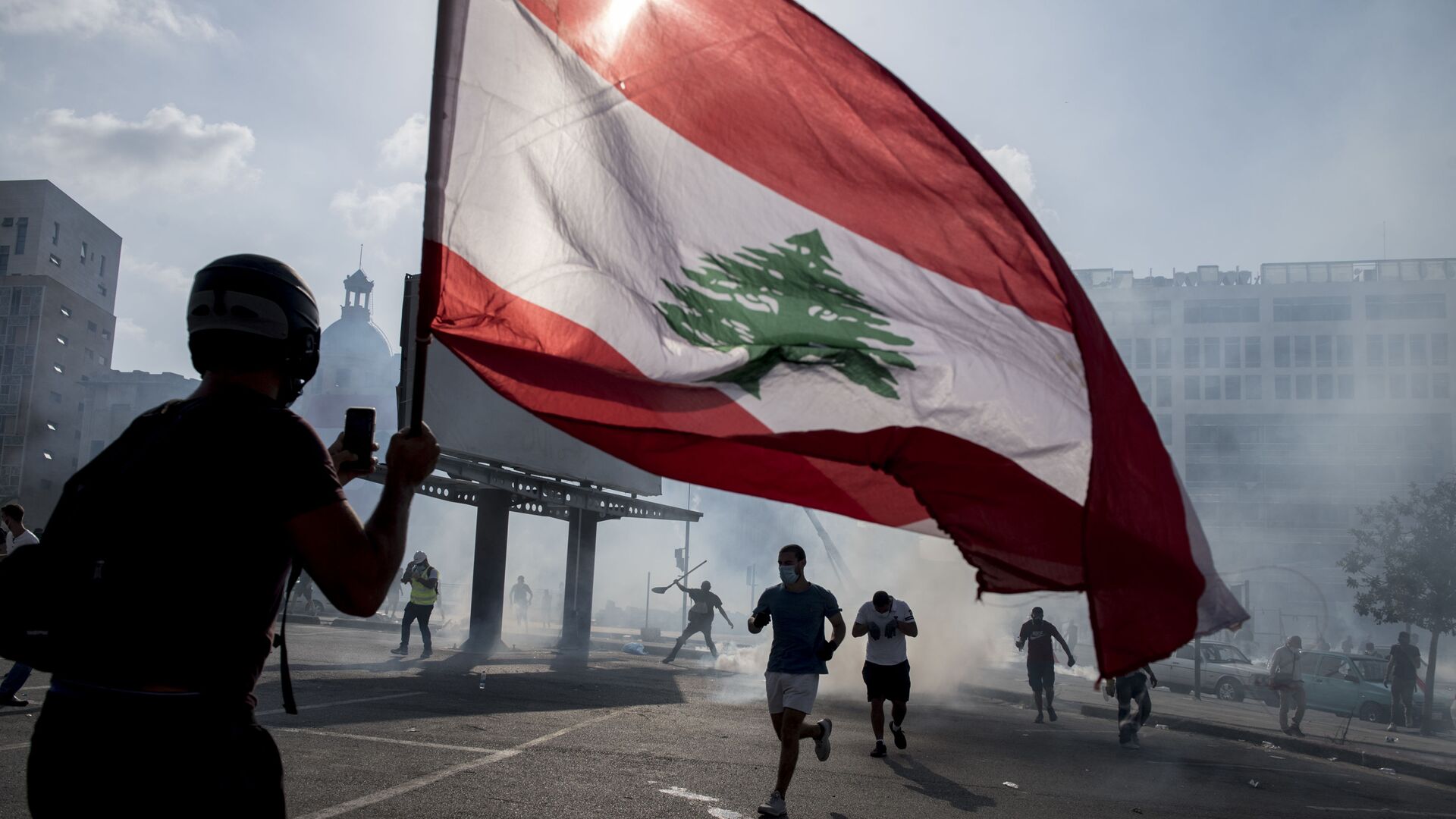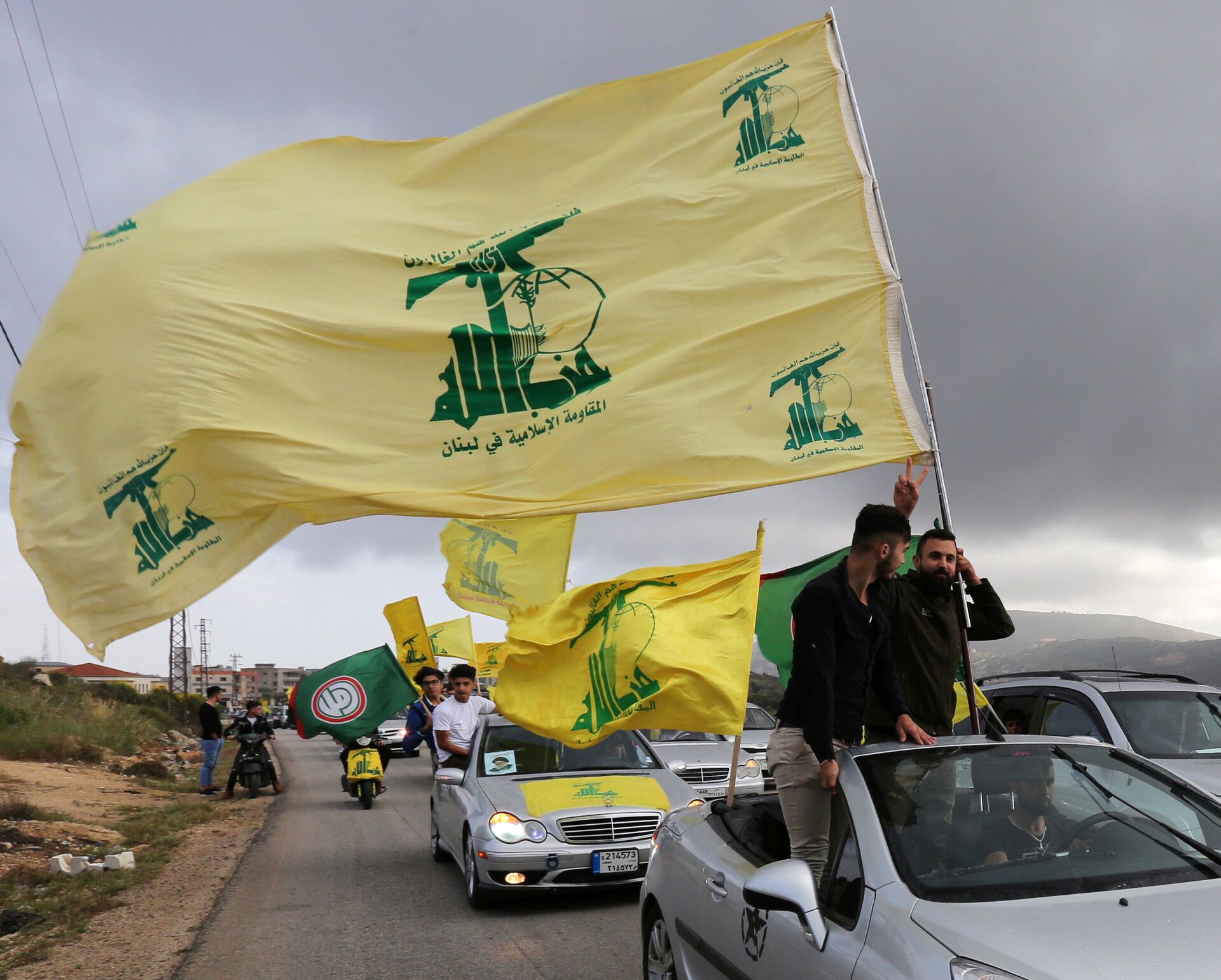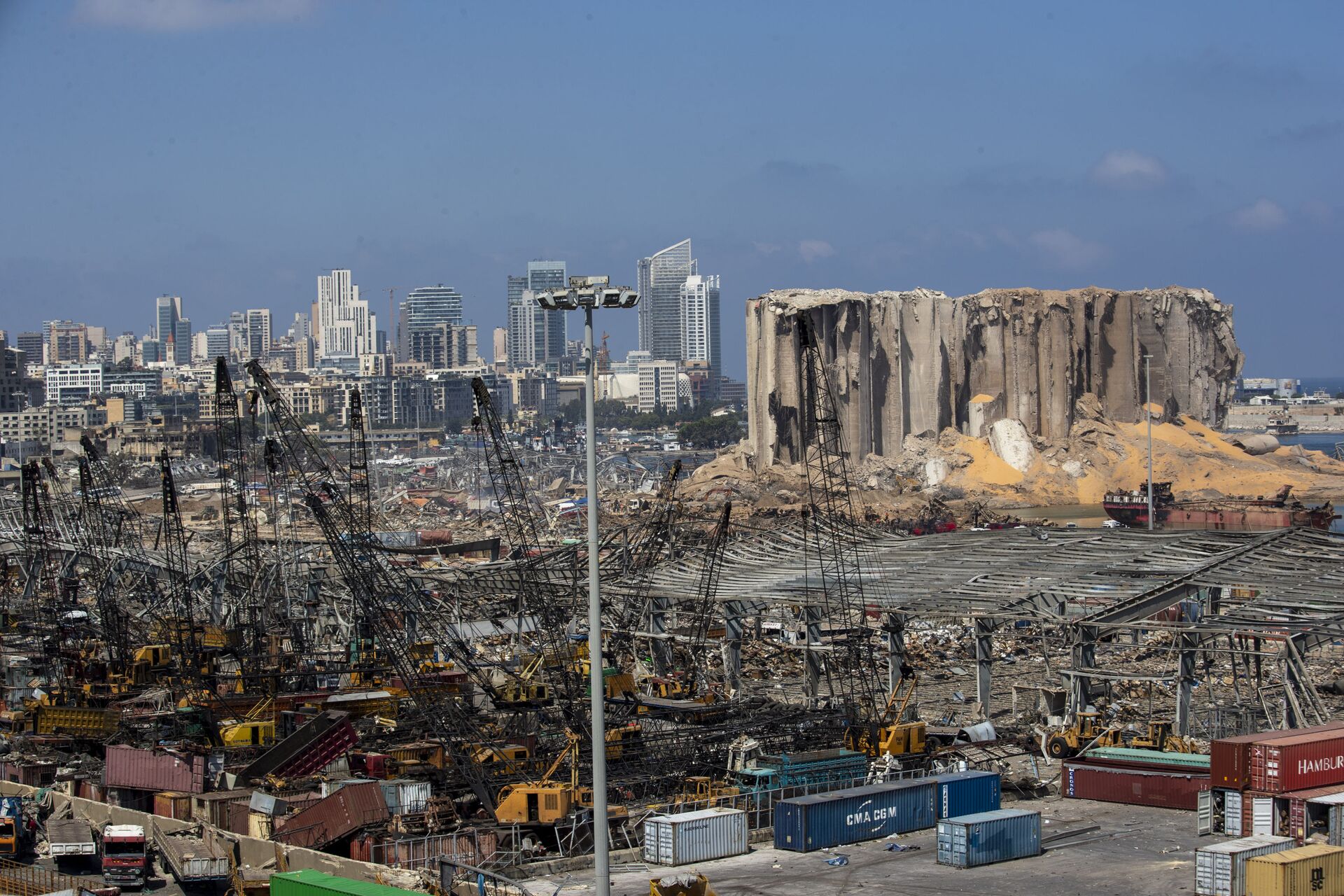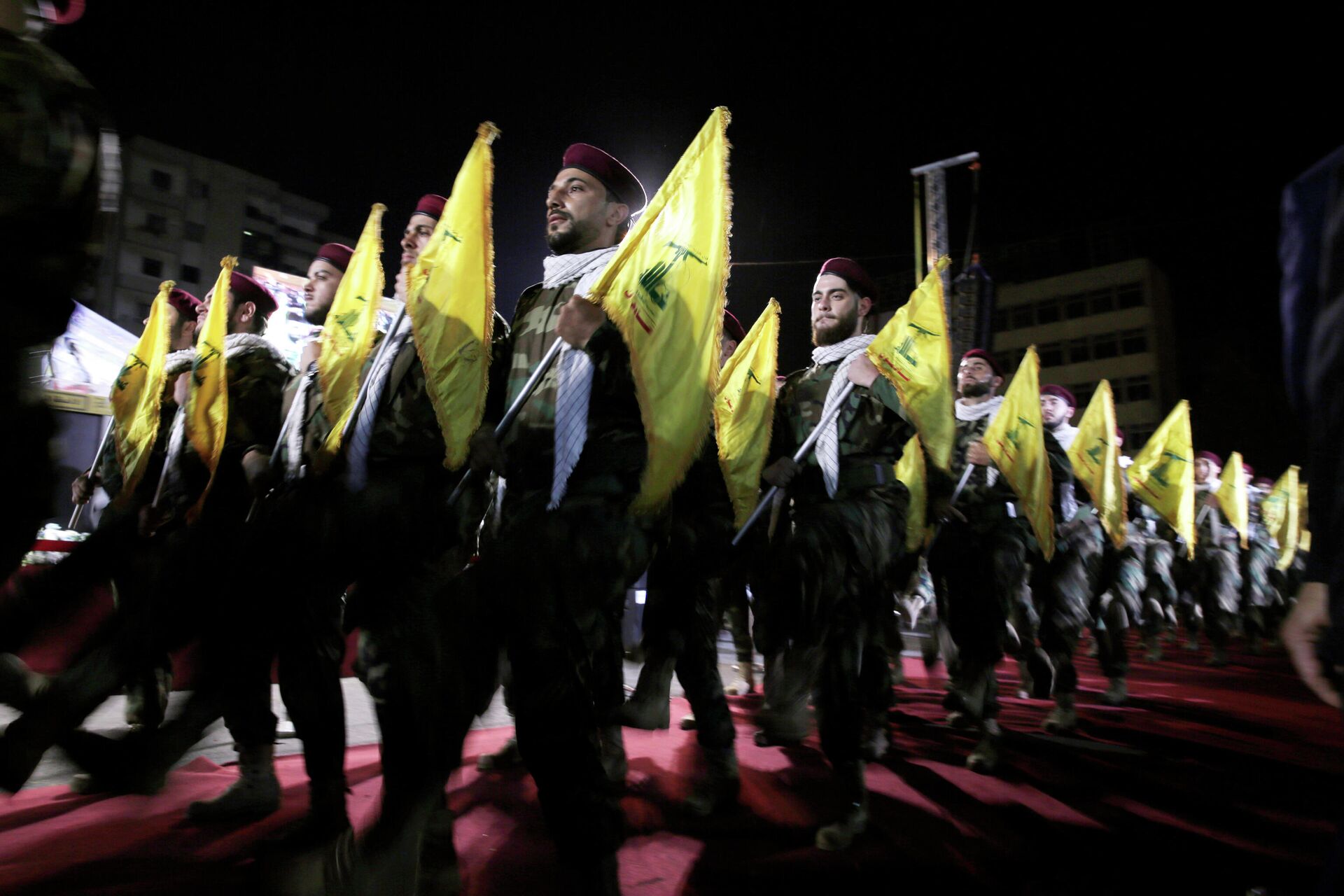https://sputnikglobe.com/20220513/lebanese-take-to-polls-as-country-reaches-its-lowest-ebb-in-economic-crisis-journo-says-1095480235.html
Lebanese Take to Polls as Country Reaches 'Its Lowest Ebb' in Economic Crisis, Journo Says
Lebanese Take to Polls as Country Reaches 'Its Lowest Ebb' in Economic Crisis, Journo Says
Sputnik International
Lebanese Take to Polls as Country Reaches 'Its Lowest Ebb' in Economic Crisis, Journo Says
2022-05-13T05:29+0000
2022-05-13T05:29+0000
2022-05-13T05:53+0000
middle east
lebanon
https://cdn1.img.sputnikglobe.com/img/07e4/0c/16/1081536938_0:0:3073:1728_1920x0_80_0_0_35649328df513e160b155787d09e9590.jpg
Voting has already begun in this year's parliamentary elections in Lebanon.More than 130,000 expatriates are now voting in 48 countries, while Lebanese citizens residing within the country will take to the polls on 15 May to choose the 128 lawmakers that will make up the Lebanese parliament.No Major SurprisesMohammed Kleit, a Beirut-based journalist, says the results of the upcoming vote are not expected to surprise many.Burning IssuesWhoever is going to win that race, will need to face a number of serious challenges, the most acute of which is the economic situation of the country.Lebanon's economy has never been stable but the situation deteriorated in 2019 following the government’s decision to impose tax on gasoline, tobacco and the use of VoIP calls on such applications as Whatsapp, something that triggered mass protests across the country.The outbreak of COVID-19 in February 2020 and the deadly Beirut port explosion in August of the same year have driven yet another nail into the economic coffin of Lebanon, pushing many to unemployment and subsequent poverty.In 2021, a Gallup poll revealed that 76 percent of the Lebanese were struggling to get by; 87 percent claimed their living standards have worsened.However, Kleit says it is unlikely that the upcoming parliamentary battle will solve the burning issues of Lebanon.No Hope in Sight?Throughout the years, Lebanese politicians have been trying to tackle the multitude of problems that have left their country's economy and political landscape shattered. They passed legislation to protect minorities and abolish sectarianism from the official institutions. They adopted anti-corruption and anti-money laundering laws, but some research papers suggest that they were poorly implemented.Politicians of various ranks have been involved in corruption cases, whereas a vast majority of the public believes they must rely on bribery to get access to better healthcare and education services.And the result, says Kleit, is that the public now has "low faith" in the current political system, where politicians prefer to blame one another, rather than form a joint front to stabilise the situation.
lebanon
Sputnik International
feedback@sputniknews.com
+74956456601
MIA „Rossiya Segodnya“
2022
News
en_EN
Sputnik International
feedback@sputniknews.com
+74956456601
MIA „Rossiya Segodnya“
Sputnik International
feedback@sputniknews.com
+74956456601
MIA „Rossiya Segodnya“
lebanese take to polls as country reaches 'its lowest ebb' in economic crisis, journo says
lebanese take to polls as country reaches 'its lowest ebb' in economic crisis, journo says
Lebanese Take to Polls as Country Reaches 'Its Lowest Ebb' in Economic Crisis, Journo Says
05:29 GMT 13.05.2022 (Updated: 05:53 GMT 13.05.2022) According to some estimates, the 8th of March bloc, comprised of the Shiite party Hezbollah and its allies, is expected to win many seats in the Lebanese legislature. It faces opposition parties that have struggled to form a united front, but are not expected to make an impact.
Voting has already begun in this year's parliamentary elections in Lebanon.
More than 130,000 expatriates are now voting in 48 countries, while Lebanese citizens residing within the country will take to the polls on 15 May to choose the 128 lawmakers that will make up the Lebanese parliament.
Mohammed Kleit, a Beirut-based journalist, says the results of the upcoming vote are not expected to surprise many.
"The 8th of March bloc [Hezbollah and its allies - ed.] is set to gain a majority in the parliament, keeping, more or less, their number of MPs," he explained.
"As for the opposition groups...they failed to form a unified list [due to many factors - ed.] and, therefore, are not presenting a serious force", he added.
Whoever is going to win that race, will need to face a number of serious challenges, the most acute of which is the economic situation of the country.
Lebanon's economy has never been stable but the situation deteriorated in 2019 following the government’s decision to impose tax on gasoline, tobacco and the use of VoIP calls on such applications as Whatsapp, something that triggered mass protests across the country.
The outbreak of COVID-19 in February 2020 and the deadly Beirut port explosion in August of the same year have driven yet another nail into the economic coffin of Lebanon, pushing many to unemployment and subsequent poverty.
In 2021, a Gallup poll revealed that
76 percent of the Lebanese were struggling to get by; 87 percent claimed their living standards have worsened.
However, Kleit says it is unlikely that the upcoming parliamentary battle will solve the burning issues of Lebanon.
"Even if opposition groups are able to gain a decent number of representatives in the house, it won't help because the judicial system, the security forces, the military, major businesses and banks are all in the hands of the political parties that have caused the crisis in the first place," explained the journalist.
"Changing that equation will be a long and chaotic process, especially because issuing laws is one thing but applying and implementing them is another," he added.
Throughout the years, Lebanese politicians have been trying to tackle the multitude of problems that have left their country's economy and political landscape shattered. They passed legislation to protect minorities and abolish sectarianism from the official institutions. They adopted anti-corruption and anti-money laundering laws, but some research papers suggest that they were poorly implemented.
Politicians of various ranks have been
involved in corruption cases, whereas a vast majority of the public believes they must rely on bribery to
get access to better healthcare and education services.
And the result, says Kleit, is that the public now has "low faith" in the current political system, where politicians prefer to blame one another, rather than form a joint front to stabilise the situation.
"The situation has been deteriorating since the 1990s and now it has reached its lowest ebb."
"Personally, I have a gloomy picture of what the future might hold for Lebanon. We need to abolish the idea of 'me and my party first' and replace it with 'Lebanon first' ideology. But this is a long process and we are running out of time."




